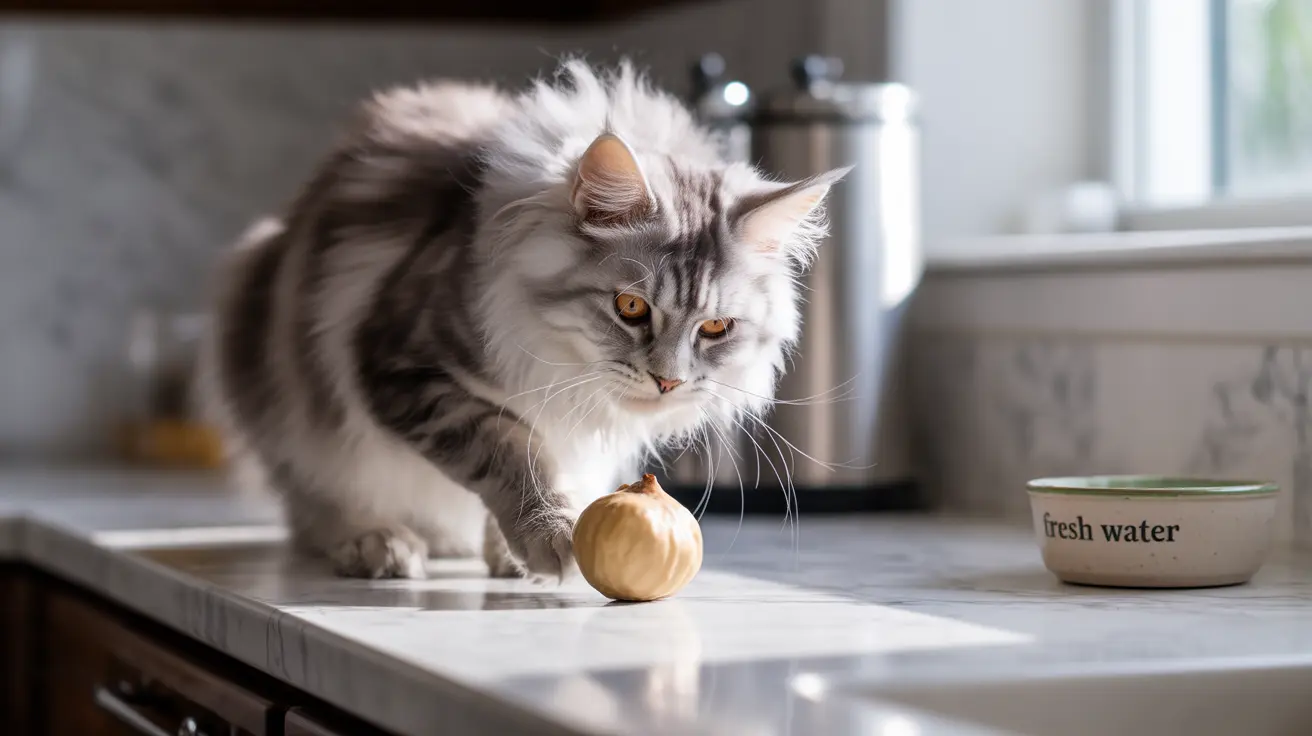If you've ever wondered whether it's safe to share water chestnuts with your feline friend, you're not alone. As cat owners become more conscious about their pets' diets, questions about human foods like water chestnuts frequently arise. Let's explore everything you need to know about cats and water chestnuts, including safety considerations, nutritional value, and proper serving guidelines.
While water chestnuts aren't toxic to cats, they're far from an ideal treat for our feline companions. These crunchy aquatic vegetables, popular in Asian cuisine, require careful consideration before being offered to cats.
Understanding Water Chestnuts and Their Safety for Cats
Water chestnuts are actually not nuts at all, but rather aquatic vegetables that grow in marshes. While they're safe for cats to consume in small amounts, they don't provide significant nutritional benefits for our feline friends. Cats are obligate carnivores, meaning their bodies are designed to process and utilize nutrients from animal-based proteins rather than plant matter.
Nutritional Considerations for Cats
Water chestnuts consist primarily of water and carbohydrates, with minimal protein content. For cats, this nutritional profile is far from ideal. Cats require:
- High-quality animal protein
- Essential amino acids like taurine
- Animal-based fats
- Minimal carbohydrates
Water chestnuts provide none of these essential nutrients in meaningful amounts, making them more of a novelty than a nutritious treat.
Potential Risks and Concerns
Choking Hazards
The crisp, crunchy texture of water chestnuts can pose a choking risk, especially if not properly prepared. Always cut water chestnuts into small, manageable pieces if you choose to offer them to your cat.
Digestive Issues
Due to their high fiber content, water chestnuts may cause digestive upset in cats, including:
- Diarrhea
- Vomiting
- Stomach discomfort
- Gas
Safe Serving Guidelines
If you decide to offer water chestnuts to your cat, follow these important guidelines:
- Serve only fresh, thoroughly washed water chestnuts
- Cut them into tiny, bite-sized pieces
- Avoid canned varieties due to added sodium
- Never add seasonings or sauces
- Limit portions to no more than 1-2 small pieces occasionally
Better Alternatives for Cats
Instead of water chestnuts, consider these more appropriate treats for your cat:
- Commercial cat treats
- Small pieces of cooked lean meat
- Freeze-dried meat treats
- Cat-specific dental treats
Frequently Asked Questions
Are water chestnuts safe for cats to eat?
Yes, water chestnuts are non-toxic and generally safe for cats to eat in small amounts. However, they should only be offered as an occasional treat and not as a regular part of their diet.
How should I prepare water chestnuts before giving them to my cat?
Thoroughly wash fresh water chestnuts, peel them, and cut them into very small pieces to prevent choking. Serve them plain without any seasonings, oils, or sauces.
Can feeding water chestnuts to cats cause any health problems?
Yes, excessive consumption can lead to digestive issues like diarrhea or vomiting. They can also pose a choking hazard if not properly prepared.
How much water chestnut can I give my cat without risking digestive upset?
Limit portions to 1-2 small pieces occasionally, no more than once or twice a week. Monitor your cat for any adverse reactions.
What is the difference between water chestnuts and regular chestnuts regarding cat safety?
While both water chestnuts and regular chestnuts are non-toxic to cats, water chestnuts are aquatic vegetables, while regular chestnuts are tree nuts. Neither should be a significant part of a cat's diet.
Remember, while water chestnuts aren't harmful to cats in small amounts, they don't contribute meaningfully to your cat's nutrition. Focus on providing your feline friend with a balanced, meat-based diet appropriate for their carnivorous nature.






